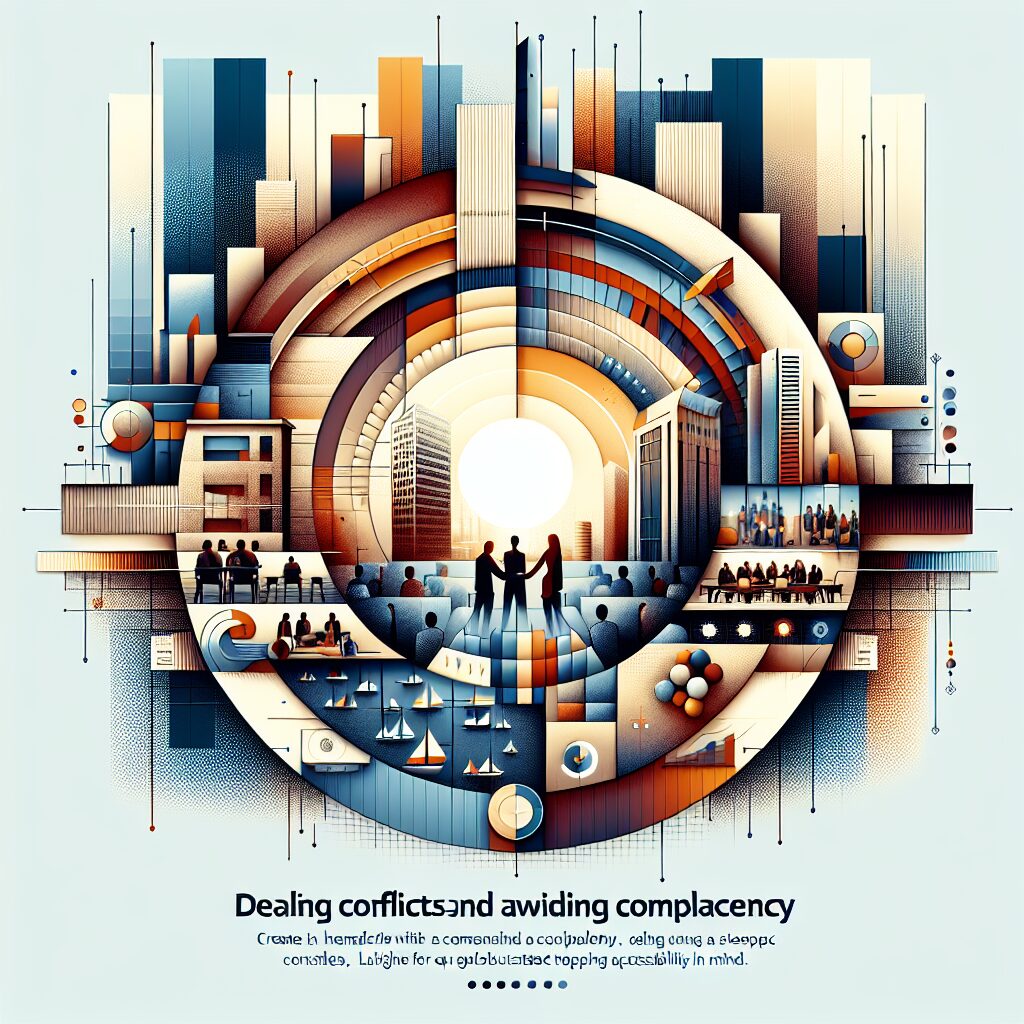
Confronting Silence: Embracing Accountability in the Workplace

The Perils of Turning a Blind Eye in Organisations
It’s a fascinating, if somewhat frustrating, truth that silence can often speak louder than words in the workplace. We live in a world where the obvious is regularly overlooked, and this can cripple even the most promising organisations. Ignoring the obvious isn’t just a blunder; it’s a fundamental error that can lead to stagnation, missed opportunities, and wasted potential.
So why do we let this happen? Often, it boils down to three key reasons we avoid addressing the issues we know are lurking in the shadows. Let’s chat about why sidestepping problems might just be your organisation’s biggest misstep.
1. The Comfort of Silence: Why Conflict Feels Too Daunting
Let’s face it, no one relishes the idea of having a tough conversation. It’s much easier to remain silent than dive headfirst into the murky waters of conflict. While avoiding difficult dialogues might bring a moment’s peace, it can fester beneath the surface, leading to long-term problems that are far more challenging to manage.
Consider this: the next time an issue arises, ask yourself: is addressing this uncomfortable conversation going to be more painful than letting it slide? Spoiler alert: Ignoring issues often backfires, causing more discomfort than the conversation itself ever would.
2. Sticking with the Status Quo: Change is Scary
We’re all guilty of clinging to what we know. The human brain loves routine and familiarity, even if they’re not delivering the best results. Change can feel daunting, and many may prefer to ride the waves of the status quo, ignoring the essential adjustments waiting to be made.
But here’s the twist: embracing change can open doors to innovation and growth. It might seem daunting, but when we face these necessary shifts, we often find ourselves on paths that lead to greater team cohesion and productivity.
3. The Misplaced Trust: A Collective Effort is Essential
There’s an odd comfort in assuming someone else will take care of problems for us. Unfortunately, that assumption can be crippling. We might think, “Oh, surely the manager knows about this,” when, in reality, it may not even be on their radar.
This misplaced trust often leads to inaction. It’s crucial we cultivate a culture where everyone feels empowered and responsible to tackle issues. After all, a team is only as strong as its weakest link. When we rely on individual effort rather than collective responsibility, we set ourselves up for failure.
Facing the Truth: A Commitment to Address Issues
Reflecting on my own experiences, I remember a project where we ignored the obvious signs of discontent among team members. It wasn’t until we started having open dialogues that we unravelled what was really happening. The change in morale and productivity was astonishing! It taught me that discomfort can lead to great things if we’re brave enough to face it.
How Can You Foster a Culture of Open Communication?
Ask yourself: how do you ensure that your team is tackling issues rather than glossing over them? Are there platforms for honest feedback? Creating a safe space for your team is crucial. Encouraging open discussions can pave the way for creativity and collaboration, vital for any thriving organisation.
In the end, let’s not shy away from those uncomfortable conversations. It’s through facing our fears, rather than running from them, that we unlock unlimited potential. Let’s thrive on transparency and accountability. Are you ready to embrace the tough conversations and drive your team forward?
After all, the journey to greatness sometimes begins with recognising the obvious.
#CitySkills #Leadership #CultureOfAccountability





